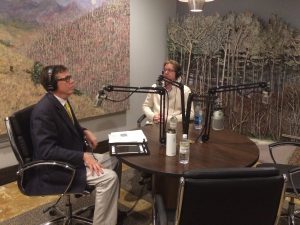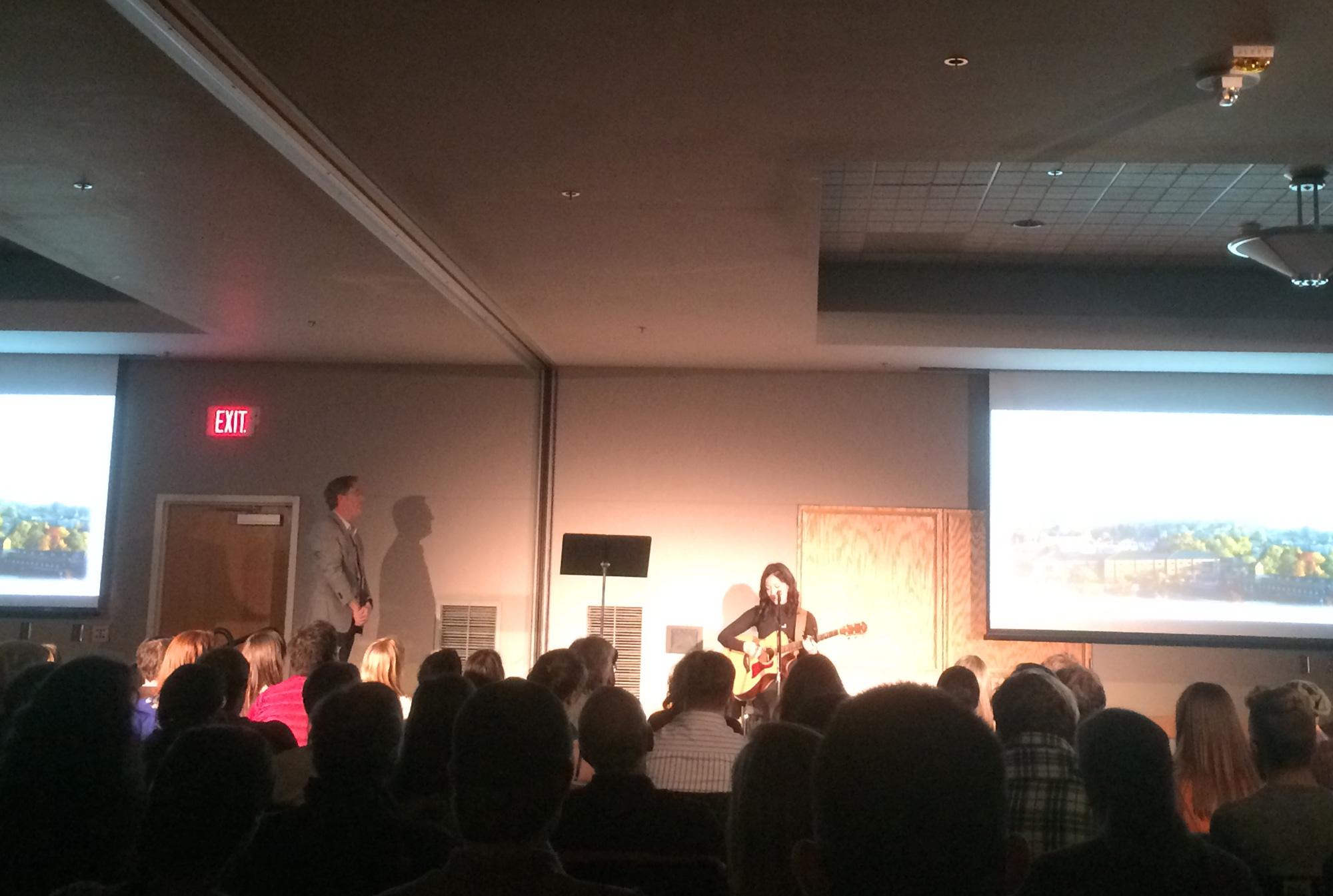Writer and performer Jeff Biggers joined Lee Ball, Appalachian State’s director of sustainability, to talk about his roots and what drives him to fight for a more self sufficient future last Friday.
“Self-sufficiency is something we lost as a people,” Biggers said. “We have lost our sense of self-sufficiency, a sense of place regeneration out of our own communities.”
Biggers was raised in southern Illinois, but

has deep roots in Appalachia. Biggers said his family lived there during the Civil War but soon after migrated west.
“You can’t understand America until you understand Appalachia because it has undergone so many changes and shifts,” Biggers said during the podcast.
His love for Appalachia started as a young man when he dropped out of the University of California Berkeley to hitchhike across America back to the Appalachians, where he began to work on farms learning to be self-sufficient. His experiences working the farm gave the inspiration to create the Climate Narrative Project, a subsection of the university of Iowa, director of sustainability and podcast host Lee Ball said.
“Our goal was to use arts and storytelling to envision another world and reality to fill in the gaps and go beyond data,” Biggers said. “We use visual art, sculpture, dance and all narrative modes to tell a better story in sustainability and climate action.”
Using art and a sustainability narrative, Biggers then constructed “Ecopolis” which is a multimedia event featuring live music and presentations. It was an interactive talk on sustainability and on what Biggers calls a “regenerative city.” It took place on Feb. 17 in the Grandfather Ballroom in the Plemmons Student Union.
“‘Ecopolis’ helps envision what Boone would look like in the year 2030 as a regenerative city,” Biggers said. “We used to live in a agropolis, a circular world of sufficiency reliant on growth, and then after the war we became a petropolis, cities that rely on petroleum, now we need to become an ecopolis, a city based upon self-sufficiency through modern technology.”
“Ecopolis Boone” began with Alexa Rose, App State alumnus and local musician, playing her guitar. She sang about Boone and the love she has for this city.
“It says a lot that this room was full, it says a lot about our community even people in this community who already sort of reiterate that message through the work they do,” Rose said.
As a sustainable development major and recent grad, Rose said she feels as though she’s giving back to the students of Appalachian and to the university.
Biggers’ show paints a picture of a Boone that unites to become self sufficient after being rocked by a drought in 2017.
“It made me want to go out and start a garden. I wanted to go out and make a change,” Savannah Nguyen, a junior global studies major, said.
The show was packed with both Boone locals and students alike. Faculty members from the Office of Sustainability were in attendance as well as members from the Divest Appalachian movement.
“Appreciate this community while you’re here and take advantage of it and get involved and volunteer,” Rose said. “Come to events like this.”
Biggers concluded the show with a message of hope and said he feels the show was a success.
“Through storytelling, through arts and through film is a way to get people to really see what life would look like if we didn’t depend on a coal mining plant or petroleum,” Biggers said. “And if this is the vision, we must simply find the road map to get there.”
Story by: Myles Toe, A&E Reporter
Photos by: Myles Toe, A&E Reporter

